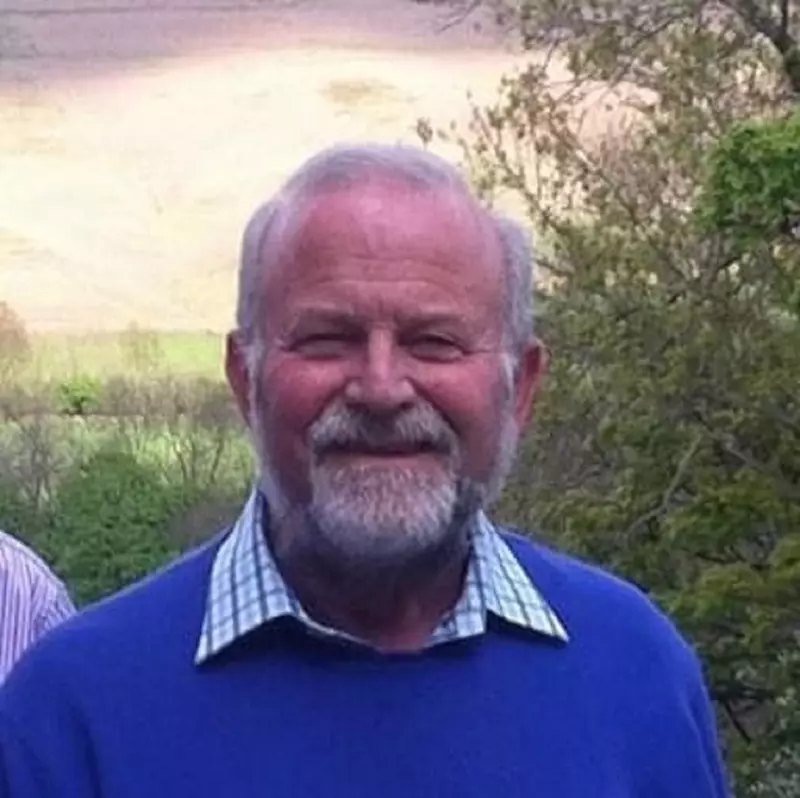Living rurally with Parkinson's
Mike, an arable farmer, was diagnosed with Parkinson’s in 2012. Now 75, he talks about living with Parkinson’s in a rural village, the importance of support networks and planning for the future.
“I’d had a suspicion for a while that I had Parkinson’s,” explains Mike. “I went to boarding school and we had to do marching drills in the morning, so I used to get teased as an adult for walking like a soldier - but my arms had stopped swinging when I walked.
“Then one day I was listening to a programme on Radio 4 and they were discussing Parkinson’s. They mentioned that losing your sense of smell could be a symptom - at that point, I couldn’t even smell pig dung.”
Mike’s GP didn’t share his hunch and instead put his symptoms down to stress - something that he had experienced before in his working life. But eventually a neurologist Mike arranged to see privately, agreed he had Parkinson’s.
“I didn’t feel as bad as I thought I would when the diagnosis was confirmed,” admits Mike. “At the time I was nursing my 90-year old mum so really my attention was with her, I wasn’t thinking about myself. I felt there was lots I could still do - I even thought about running the London marathon one last time, which I’d done 13 times before to raise funds for charities.”
Now I spend more time in a wheelchair than I do on my legs, but to start with, it was quite a slow deterioration. I carried on working on the farm then - albeit at a slower pace.
Stepping back
Mike has been an arable farmer his entire working life, growing potatoes, wheat and barley on his farm in North Yorkshire, and this didn’t stop in the years immediately after his diagnosis.
“Now I spend more time in a wheelchair than I do on my legs, but to start with, it was quite a slow deterioration,” explains Mike. “I carried on working on the farm then - albeit at a slower pace.”
Over time though, Mike did reach a point where he had to retire and his nephew now manages the farm.
“It was extremely difficult when I had to step back,” Mike admits. “Arable farming has peaks and troughs throughout the year, but the harvest is the big job in the calendar. Not to be able to take part in that now is tough.”
Places can be lonely without networks, especially when you have Parkinson’s...And I have amazing friends and family where I am - I’m not sure why they give me so much time!
Living rurally
Living in a rural environment does have it’s challenges and in the months after his diagnosis, Mike did reflect on his situation.
“I considered moving from my village to somewhere like York. I love the buzz from a place like that and it’s definitely more of a pull for me than a small market town, for example,” Mike says.
“But those thoughts diminished over time. Places can be lonely without networks, especially when you have Parkinson’s,” Mike concedes. “And I have amazing friends and family where I am - I’m not sure why they give me so much time!”
Living alone, Mike has relied on those around him in different ways. “About 2 or 3 years ago, I gave up my driving license. In a village, not having wheels does create problems, so friends help me to get to appointments. Someone always phones me daily.”
“I also had strategies to stay safe at home, so if I was going for a shower I would call someone to tell them what I was doing, and then call them again when I was out and dressed. That way they would know that if I didn’t call them back, I might need help.”
“It was my family who suggested organising home care as my condition has progressed. Now I have a carer who comes in twice a day, in the morning and evening,” explains Mike. “It’s been a big help and has definitely taken the pressure off friends and family.”

New chapters
Now after 42 years living in the same house in the village where Mike used to play as a child, he is preparing to start a new chapter.
Mike has converted the garages next door to his current home into two apartments. He will live in one and he plans a live-in carer will move upstairs, in the second self-contained unit. The project allowed Mike to consider his future needs and design his home around those.
“There’s a big toilet, which is important and as everything will be on one level, I don’t need a stairlift,” explains Mike. “There are grab rails everywhere and it’s amazing how much easier they make things.”
But while Mike is no longer active on his farm, his farming roots aren’t too far away from the surface. “I’ve also designed the kitchen, but I’ve never cooked. Farmers of my generation in Yorkshire don’t cook - full stop!”

